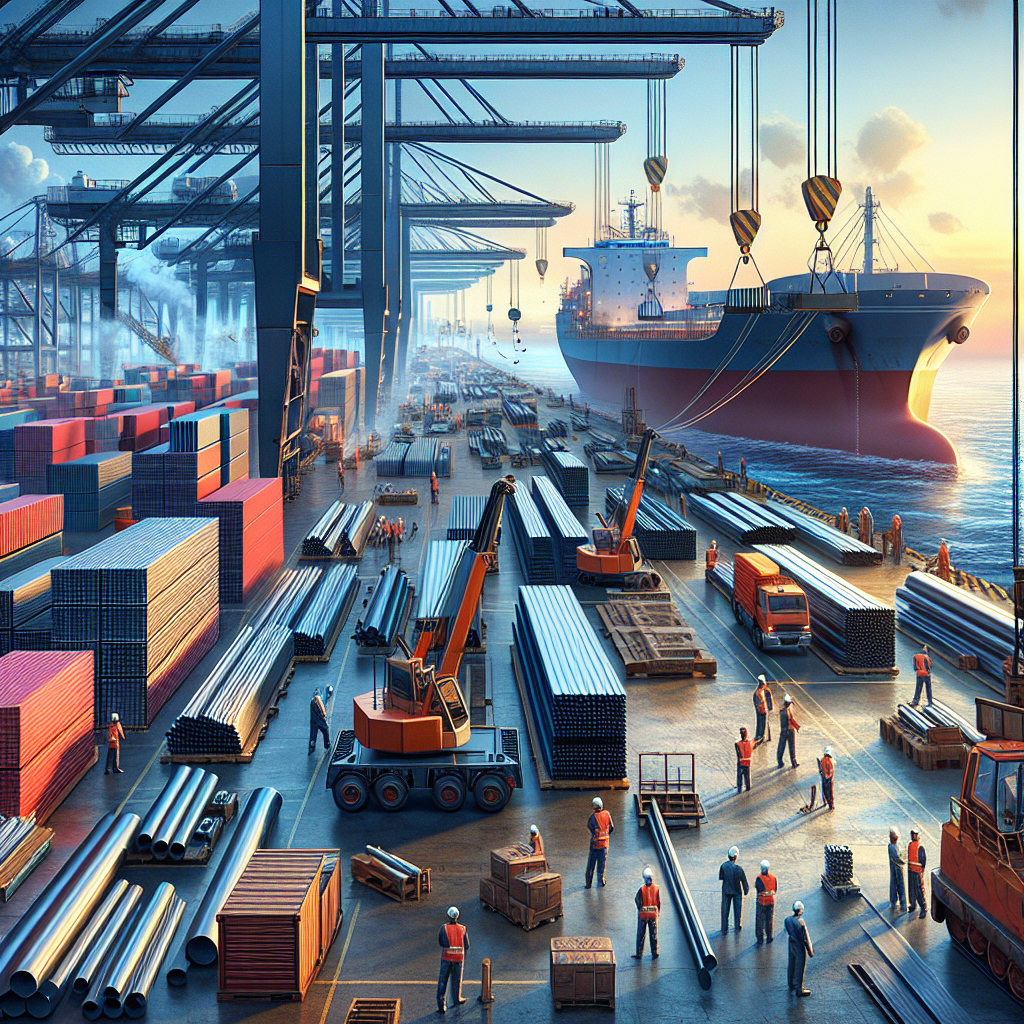Increase in Imports and Quality Control Issues Pose Challenges for India's Steel Industry
For steel grades not covered by BIS standards, the Ministry of Steel requires a No Objection Certificate (NOC) to be issued for imports.

- Country:
- India
India's steel imports have surged significantly in the first half of the fiscal year 2024-25, showing a 41.3% increase compared to the same period last year. Steel imports have risen from 3.329 million tonnes during the first half of 2023-24 to 4.735 million tonnes in 2024-25. While the overall volume of imports is still relatively small compared to total consumption, the increase in cheaper imported steel is leading to a depression of domestic steel prices, which is adversely affecting both large and small steel producers.
India’s steel industry is marked by a significant contribution from over 1002 small producers who together produced 40.84% (58.93 million tonnes) of the country’s total steel output of 144.3 million tonnes in 2023-24. The remaining 59.16% (85.37 million tonnes) was produced by integrated steel producers. These small producers, who are spread across multiple clusters in the country, are particularly vulnerable to the influx of low-priced imports, which undermines their ability to compete in the market.
Steel Consumption Growth and Future Capacity Needs
Despite concerns over imports, India remains the only large economy exhibiting robust growth in steel consumption. The first half of 2024-25 showed a 13.5% growth in steel consumption, a positive sign for the country's infrastructure development and industrial growth. Even with a conservative estimate of 10% demand growth, India will require 300 million tonnes of steel production capacity by 2030, up from the current capacity of 180 million tonnes.
To meet this demand, India must add 120 million tonnes of steel production capacity, a goal that will require an investment of approximately $120 billion (over Rs. 10 lakh crore). However, the ongoing trend of cheap steel imports, largely due to global steel dumping, could jeopardize these long-term objectives and adversely affect the steel industry’s ability to scale up production capacity.
Ensuring Quality: BIS Standards and the NOC Process
To address concerns over the quality of steel imports, the Bureau of Indian Standards (BIS), in collaboration with the Ministry of Steel, has been implementing measures to ensure that only high-quality steel is produced or imported into India. As of now, 151 BIS standards covering 1376 grades of steel have been notified and are part of the Quality Control Orders issued by the Ministry of Steel. These regulations ensure that steel used within the country meets domestic quality standards, whether it is produced locally or imported.
Despite these efforts, there have been concerns regarding attempts to bypass these quality checks. Some traders and manufacturers have sought to import steel with slight alterations to the steel grades in order to circumvent the BIS standards and bring in cheaper products. In 2023 alone, 1136 applications were submitted to the Ministry of Steel for new steel grades, many of which were not internationally recognized or aligned with BIS standards, raising concerns about the quality and authenticity of these materials.
NOC Process for Non-BIS Compliant Imports
For steel grades not covered by BIS standards, the Ministry of Steel requires a No Objection Certificate (NOC) to be issued for imports. However, a significant number of these applications have been found to be non-compliant with the prescribed norms. As of October 31, 2024, there were 735 applications for steel imports from Japan, out of which 594 were granted NOCs, while 141 were denied for not meeting the necessary standards.
The Ministry of Steel maintains that NOCs are only issued for steel grades that are not already covered by BIS standards. Any attempt to import low-quality steel by misrepresenting grades or altering specifications is being discouraged. These measures are crucial in ensuring that the quality of steel used in India’s infrastructure and manufacturing sectors is not compromised, protecting both the interests of domestic producers and the safety of end-users.
The Path Forward for India’s Steel Industry
With steel imports continuing to grow, the Indian steel industry is facing a critical challenge in maintaining price stability and boosting domestic production capacity. As the country moves toward its goal of 300 million tonnes of steel production by 2030, it is imperative that the government continues to enforce stringent quality control measures and promote fair trade practices to support both large and small steel producers. Encouraging responsible imports and ensuring compliance with BIS standards will be essential to safeguarding the future of India’s steel industry and achieving its infrastructure development goals.
- READ MORE ON:
- Steel Industry










